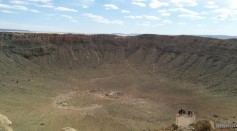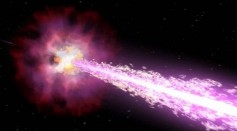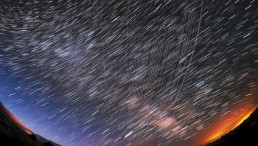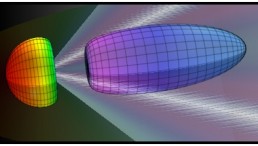particle
350-Year-Old Mechanical Theorem Reveals New Properties of Light; How Does the Helmholtz Equation Describe the Behavior of Waves?

Asteroid 162173 Ryugu Particle From the Hayabusa2 Mission Is the Most Uncontaminated Material to Match Solar System Composition

Photon Split Into Halves, Which “Nobody Believed Existed,” Shows New Approach in Physics to See and Understand Light

Scientists Finally Detected The Dark Matter Escaping From Neutron Stars
Are Snowflakes Really Uniquely Patterned? Know How These Tiny Ice Crystals Are Formed
NASA May Have Just Accidentally Discovered Faster than Light Travel
The Light Theory—How Researchers Are Proving Einstein Right With a Snapshot
CERN’s Large Hadron Collider Adds Two New Subatomic Particles to the List
Could A Techni-Particle Save Us from the Universe’s Undoing?
Could Large Hadron Collider Discovery Be Something Else? Researchers Look to Techni-Higgs Particles
Most Popular

H5N1 Bird Flu Has Spread to Humans With 'Extraordinarily High' Mortality Rate, WHO Warns

Roman Lead Coffin Found To Hold Previously Unknown Human Child Remains in Fascinating Discovery

Pluto's Heart: Massive Ancient Collision May Explain How Dwarf Planet's Unique Heart-Shaped Feature Formed, Scientists Discover

Why Do People Struggle to Remember Mundane Things Like Passwords, Locking the Front Door?




![Sat-Nav in Space: Best Route Between Two Worlds Calculated Using 'Knot Theory' [Study]](https://1721181113.rsc.cdn77.org/data/thumbs/full/53194/258/146/50/40/sat-nav-in-space-best-route-between-two-worlds-calculated-using-knot-theory-study.png)

